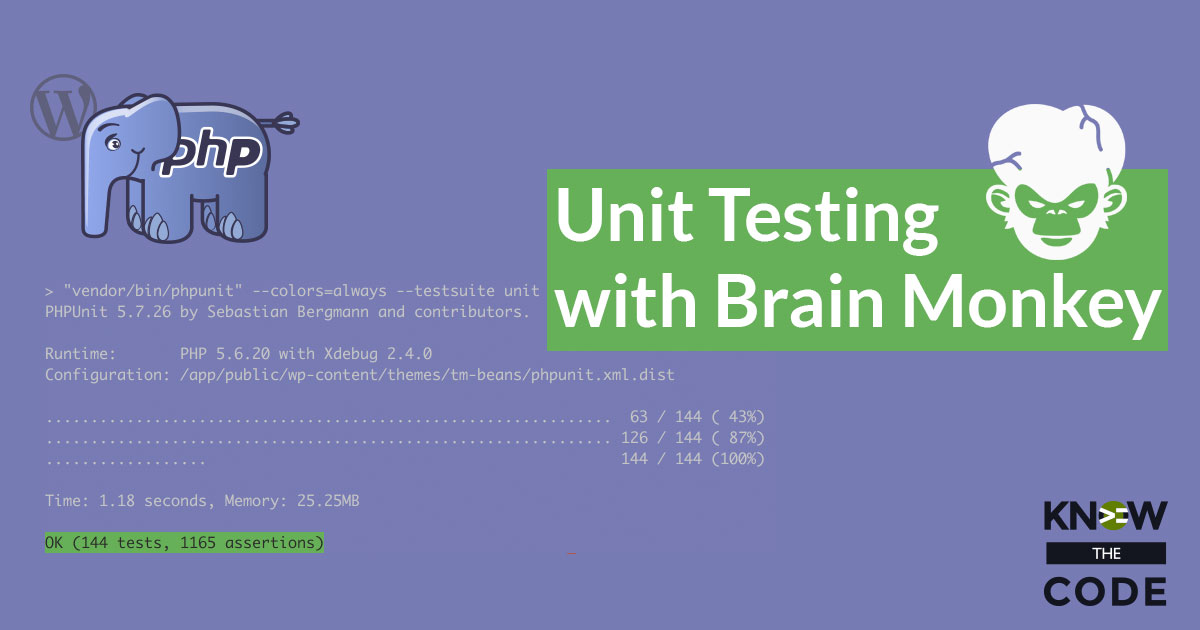There are multiple behavior (task) options you can use for the when() patching function: justReturn(), returnArg(), justEcho(), echoArg(), and alias(). Let’s walk through each one and write some code to see how to use them in your testing suite.

Developing & Empowering WordPress Developers
Labs are hands-on coding projects that you build along with Tonya as she explains the code, concepts, and thought processes behind it. You can use the labs to further your code knowledge or to use right in your projects. Each lab ties into the Docx to ensure you have the information you need.
Each lab is designed to further your understanding and mastery of code. You learn more about how to think about its construction, quality, maintainability, programmatic and logical thought, and problem-solving. While you may be building a specific thing, Tonya presents the why of it to make it adaptable far beyond that specific implementation, thereby giving you the means to make it your own, in any context.
0 Videos Runtime

There are multiple behavior (task) options you can use for the when() patching function: justReturn(), returnArg(), justEcho(), echoArg(), and alias(). Let’s walk through each one and write some code to see how to use them in your testing suite.
0 Videos Runtime

Let’s dig into the when() patching function in Brain Monkey. This function lets you redefine the expected behavior of a function that you want to mock out. In other words, for your unit test, you want to redefine (mock) an external function to achieve a pure unit test.
0 Videos Runtime

Let’s dive into the all of the different functions (toolset) that are available for you in Brain Monkey. We’ll look at the documentation and its test suite.
0 Videos Runtime

In this episode, you and I will walk through the Test Case and add in the setUp and tearDown for Brain Monkey, which then handles Patchwork and Mockery for us.
0 Videos Runtime
In the last episode, we talked about the philosophy of unit testing, i.e. testing in isolation without the function’s dependencies. In order to test in isolation, we need to know what each dependent function will do within the context of that test (i.e. given conditions) and then write a function that redefines the original in order to force it to do what it should. In this episode, you and I will dive into what is happening between the scenes in the PHP internals of user-defined names and memory). I’ll give you an overview to help you visualize how Brain Monkey[…]
0 Videos Runtime

Let’s explore both the philosophy of unit testing (i.e. testing in isolation) and the problem we face of redefining dependent functions in order to achieve a pure unit test.
Know the Code flies on WP Engine. Check out the managed hosting solutions from WP Engine.
WordPress® and its related trademarks are registered trademarks of the WordPress Foundation. The Genesis framework and its related trademarks are registered trademarks of StudioPress.
This website is not affiliated with or sponsored by Automattic, Inc., the WordPress Foundation, or the WordPress® Open Source Project.